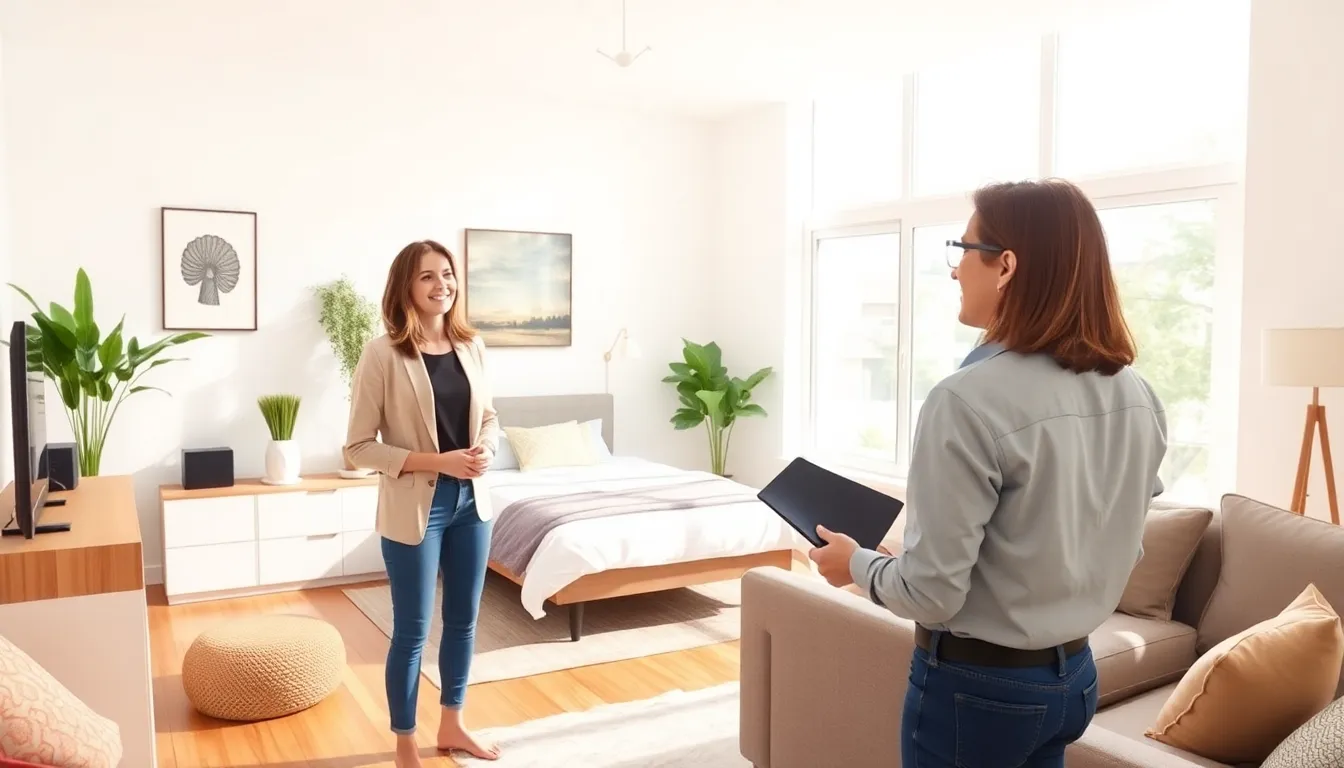Imagine living in your dream home while someone else foots the bill. Sounds like a fantasy, right? Welcome to the world of house hacking, where savvy homeowners turn their properties into money-making machines. Whether it’s renting out a spare room or converting a basement into a cozy apartment, house hacking is the secret sauce to financial freedom.
In this guide, he’ll uncover the ins and outs of house hacking, making it as easy as pie—without the messy kitchen. From finding the perfect tenants to navigating the legalities, it’s all about maximizing space and minimizing costs. So grab your toolbelt and get ready to transform your home into a cash cow. Who knew living the good life could be so profitable?
Table of Contents
ToggleWhat Is House Hacking?
House hacking is a strategic approach for homeowners to offset their mortgage payments while generating extra income. This concept involves utilizing available spaces within a residential property, such as spare rooms, basements, or in-law suites. By renting these areas to tenants, homeowners enhance financial stability and gain access to passive income streams.
Many individuals adopt this method to alleviate the financial strain of homeownership. House hacking allows them to maintain affordability while living in desirable neighborhoods. Potential renters often seek accommodation in various housing types, including single-family homes and multifamily units.
House hacking also encourages community building. Tenants often become part of the household, leading to lasting connections and a sense of camaraderie. Additionally, renting out spaces can provide practical experiences for homeowners in property management and tenant relations.
Local laws and regulations dictate the compliance necessary for house hacking. Landlords may need to register their properties or adhere to specific zoning laws. Understanding these requirements beforehand prevents legal complications and enhances the rental experience for both parties.
Overall, house hacking represents an innovative solution for financial freedom. Individuals aiming to reduce their living expenses or even eliminate their mortgage can find significant benefits in this strategy. Exploring various rental options, potential tenants, and legal guidelines enables homeowners to make informed decisions in their house hacking journeys.
Benefits of House Hacking

House hacking offers numerous advantages for homeowners looking to maximize their property’s potential. Focusing on financial savings and community integration can transform the house hacking experience.
Financial Freedom
Generating income through house hacking significantly reduces monthly expenses. Renting out a spare room or basement can cover a portion of mortgage payments. This income enhances cash flow and opens up possibilities for investments and savings. Many house hackers report increased financial flexibility, enabling them to allocate funds toward retirement, travel, or other long-term goals. Utilizing platforms like Airbnb or traditional leases can further increase earnings potential. Homeowners often find that house hacking not only alleviates financial strain but also fosters a sense of accomplishment in achieving their financial objectives.
Community Living
House hacking promotes a unique living environment that fosters connection. Renting to individuals or families creates opportunities for shared experiences and lasting relationships. Many homeowners describe their tenants as an integral part of their households, enhancing the overall living atmosphere. Collaborative living arrangements can lead to valuable social interactions and support networks. Community-building emerges as tenants contribute to a lively household dynamic. This unique aspect of house hacking allows homeowners to engage with diverse individuals and cultivate a sense of belonging within their neighborhoods.
Different House Hacking Strategies
Various house hacking strategies exist that homeowners can implement to generate income while reducing living expenses. Each strategy offers unique advantages based on individual circumstances and property types.
Renting Out a Room
Renting out a spare room remains one of the simplest strategies for house hacking. Homeowners can find tenants through various platforms or local advertisements. This approach often yields consistent monthly income and provides opportunities to build relationships with tenants. Typically, rents can range from $500 to $1,500 monthly, depending on location and property size. Landlords should ensure to screen potential tenants thoroughly to maintain a safe and comfortable environment.
Multi-Family Properties
Owning multi-family properties allows for additional income generation through multiple rental units. Homeowners can occupy one unit while renting out the others, potentially covering mortgage payments and other expenses. Market research on local rental rates becomes crucial to assess profitability. Expenses for property maintenance and management should also be factored in when considering this strategy. Multi-family homes often prove beneficial in high-demand areas, providing stable and ongoing revenue.
Short-Term Rentals
Short-term rentals offer flexibility and higher earning potential compared to traditional leases. Platforms like Airbnb allow homeowners to rent out entire properties or specific rooms for short periods, catering to travelers or business visitors. Dynamic pricing strategies can maximize earnings during peak seasons. Legal regulations around short-term rentals must be navigated, ensuring compliance with local laws. Homeowners can achieve significant income through this approach, especially in tourist-friendly locations.
How to Get Started with House Hacking
House hacking starts with understanding your property and how to best utilize it for income generation.
Assessing Your Property
Evaluate available spaces within your home. Spare rooms, basements, and in-law suites often present excellent rental opportunities. Consider the layout, privacy, and potential appeal to tenants. Review local zoning laws to ensure compliance, as regulations vary by area. Homeowners should also assess property conditions, determining any necessary repairs before welcoming tenants. By enhancing the property’s appeal, landlords can attract higher-quality tenants and increase rental income.
Finding Tenants
Utilize effective marketing strategies to reach potential tenants. Online platforms such as Craigslist, Zillow, and Facebook Marketplace offer broad visibility. Highlight unique features of the rental space, including amenities and nearby attractions. Pricing competitively also attracts interest; research similar listings in the area to set an appropriate rental rate. Conduct thorough background checks to ensure tenant reliability. Clear communication about expectations and rules fosters positive relationships, enhancing the rental experience for both parties.
Managing Your Space
Establish a structured management plan for the rental space. Create clear rental agreements that outline terms and conditions, helping to prevent misunderstandings. Schedule regular maintenance to address issues promptly, maintaining a safe and comfortable environment for tenants. Consider setting boundaries to ensure privacy for both the homeowner and the tenant. By fostering a respectful living arrangement, homeowners can enjoy the benefits of house hacking while building a positive community atmosphere.
House hacking offers homeowners a unique opportunity to enhance their financial situation while fostering community connections. By leveraging available spaces within their properties, individuals can significantly reduce living expenses and create passive income streams. This strategy not only alleviates the financial burden of homeownership but also encourages a collaborative living environment.
As homeowners embark on their house hacking journey, understanding local regulations and implementing effective management practices will be crucial. With the right approach and mindset, house hacking can transform a home into a valuable asset, paving the way toward financial freedom and a more fulfilling lifestyle. Embracing this innovative strategy could be the key to unlocking a brighter financial future.





